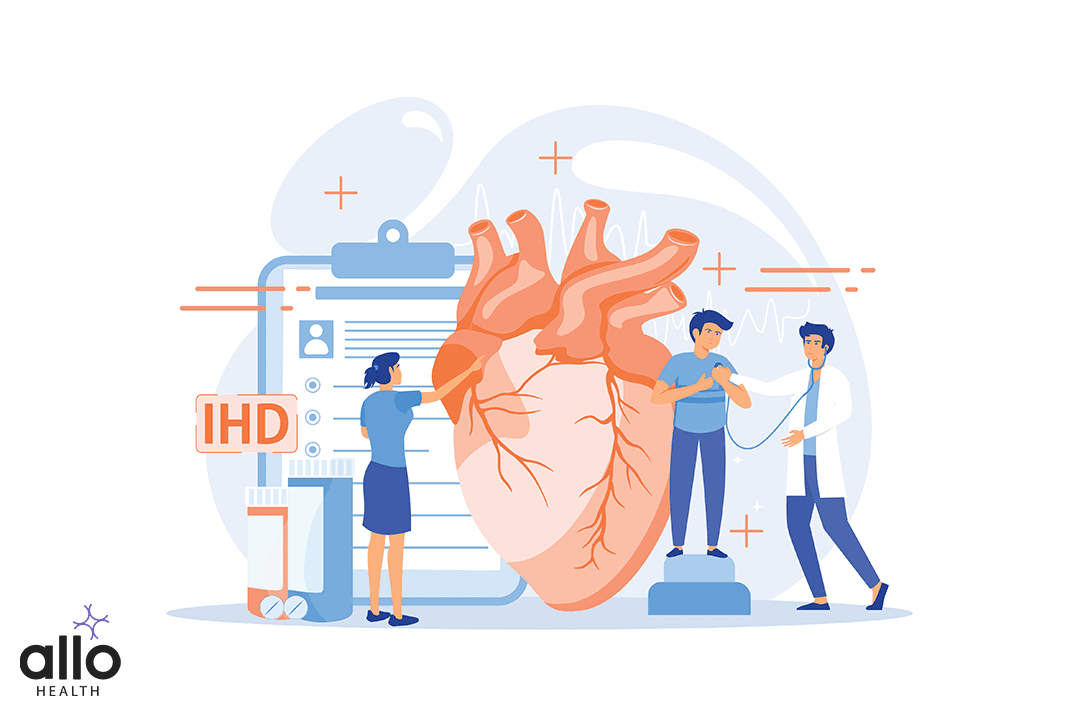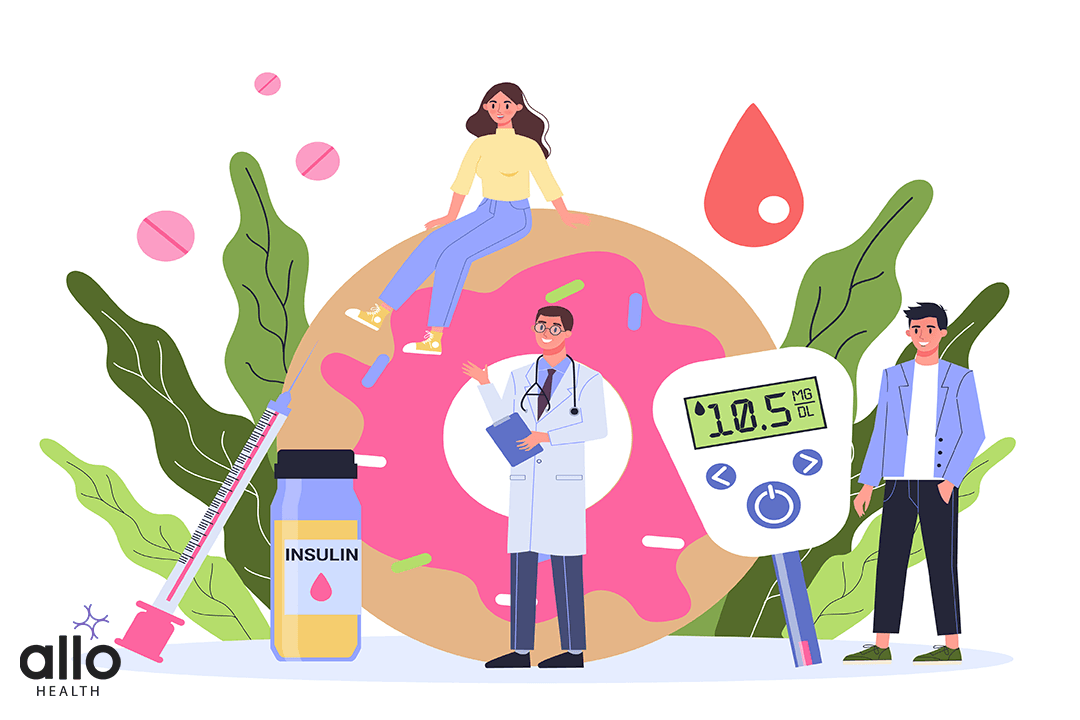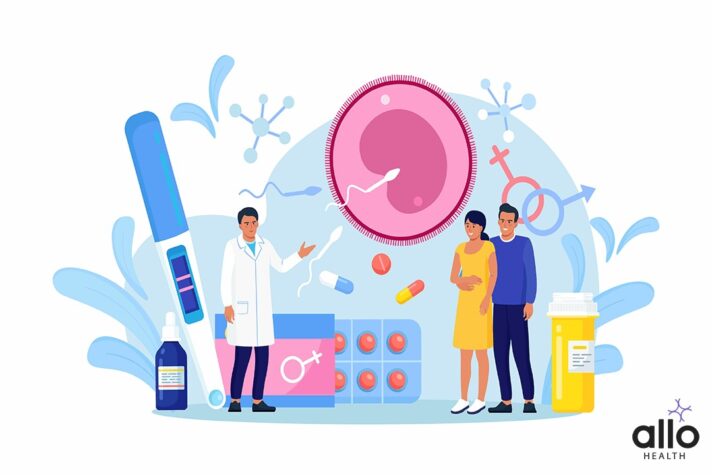What is Erectile Dysfunction?
Medically reviewed by Kanusha YK

When relationships feel strained, intimacy becomes difficult, or emotions feel hard to manage, it can be challenging to know where to start. As a Clinical Psychologist, Couple & Family Therapist, and Psychosexologist with nearly a decade of experience across hospital, corporate, and healthcare settings, I help individuals and couples rebuild connection, communication, and self-understanding. I support clients struggling with sexual disorders, relationship conflicts, anxiety, emotional regulation, and adolescent concerns. In therapy, we take a practical, step-by-step approach, understanding what’s really behind your struggles, learning new tools to manage emotions, and creating meaningful change that lasts. My work combines evidence-based techniques with warmth and collaboration. In simple terms, I adapt therapy to what works best for you. Clients often tell me that therapy helps them feel calmer, more connected, and more confident in both life and relationships. Outside of sessions, I find joy in gardening, evening walks, and relaxing movie nights, small rituals that keep me grounded and refreshed.
•
Written by Anoush Gomes

Anoush Gomes is a seasoned Content Writer with over 10 years of experience, specializing in various writing styles such as medical content, creative writing, storytelling, and research papers. Anoush embarked on a unique journey, starting with pre-medical studies at the Dante Aligheri Academy and the University of Miami, where she earned a Bachelor's degree with a major in Biology and a minor in Psychology.Having pursued medical school and completed clinicals, Anoush transitioned to the world of medical content writing, where her passion for both healthcare and writing converged. Her writing skills encompass persuasive, narrative, expository, and descriptive styles, making complex medical concepts accessible to diverse audiences.Beyond her professional endeavors, Anoush is a multi-faceted individual with a rich tapestry of interests. A writer, artist, poet, avid reader, certified nerd, and hopeful author, she finds inspiration in the intersection of creativity and science.Whether crafting engaging medical narratives or weaving captivating stories, Anoush combines her diverse background and writing expertise to deliver compelling content that resonates with diverse audiences.
•
July 24, 2023
Our experts continually monitor the health and wellness space, and we update our articles when new information becomes available.

Quick Read
Erectile Dysfunction (ED) is a common sexual health condition where a man is unable to achieve or maintain an erection firm enough for sexual intercourse. It is often a symptom of an underlying physical or psychological issue, such as poor blood flow, nerve damage, hormonal imbalance, stress, anxiety, or chronic conditions like diabetes and heart disease. Erections depend heavily on healthy blood flow and nerve function, which is why conditions affecting circulation, hormones, or mental health can impact erectile function. ED can affect men of all ages and may significantly influence confidence, relationships, and overall quality of life.
Definition of Erectile Dysfunction
ED, a sexual dysfunction, is defined as the inability to achieve or sustain an erection sufficient or firm/hard enough for sexual intercourse. It is a symptom of an underlying condition that may be affecting an individual’s emotional and/or physical health. It is considered to be one of the most common sexual dysfunctions that affect men- it can greatly affect a man's sexual performance.
ED can occur broadly due to one, or both, of two ways:
- Reduced blood flow/nerve supply to the penis or imbalanced sex hormones
- Increased stress or mental health concerns
How Erections Work
To explain briefly, when a man is sexually aroused (when there is sexual stimulation or when a man feels 'turned on'), the brain signals the release of chemicals that aid in increasing blood flow to the penis. Along with this, the spongy tissues in the penis relax and trap the blood in the penis, increasing the blood pressure and causing an erection.
Erections are highly dependent on blood flow health - if this is impacted in any way, there is a chance that erectile functioning can be negatively altered.
What Are The Different Types Of ED?
Different Types of Erectile Dysfunction
There are two types of Erectile Dysfunction (ED).
- Primary Erectile Dysfunction
- Secondary Erectile Dysfunction
Primary Erectile Dysfunction
This type of erectile dysfunction is considered to be rare, and is most commonly the result of psychological factors.
Secondary Erectile Dysfunction
This type of erectile dysfunction is considered to be the most common, and is caused mostly due to organic causes. The most prevalent forms of organic causes of erectile dysfunction include cardiovascular disease, neurological disorders and chronic conditions such as atherosclerosis or diabetes respectively.

Atherosclerosis: This is a condition that results from the build-up of plaque in the artery walls. This build-up could include fats and cholesterol. The reason this is correlated with ED is because the build-up can cause arteries to narrow therefore restricting blood flow - a critical influencing factor in ED.

Diabetes:
Diabetes, or high blood sugar can result in nerve damage and blood vessel damage leading to blood flow alteration to the penis. Those have diabetes are three times more likely to develop Erectile Dysfunction - a longer duration of diabetes is also closely associated with the sexual dysfunction. Both ED and Diabetes can be experience co-currently - in fact as per a 2014 review, the risk of developing ED is approximately 50%.
Erectile Dysfunction (ED): Causes, Symptoms, Treatment & Diagnosis
Erectile Dysfunction Causes
There are various causes that can affect erectile function. These can include:
- Physical causes such as medical conditions, hormonal imbalance, prostate surgery, etc.
- Psychological causes such as addictions to illegal drugs, anxiety disorders, relationship issues, stress, etc.
- Side-effects of certain medications or prescription drugs are also considered a common cause of ED
The unfortunate fact about sexual wellness is the stigma associated with it - therefore, while there are a few that accept that ED can disrupt an individual's life, psychological factors are barely taken into consideration. This is because therapy is commonly considered taboo. However, Psychogenic Erectile Dysfunction is a sexual dysfunction that affects many - it's main cause is a psychological factor.
Understanding the causes of Erectile Dysfunction is imperative to know why you're experiencing concerns with erectile functioning. In fact, during a holistic evaluation, a sexual health professional analyses your medical and sexual history in order to pin-point the right cause behind your Erectile Dysfunction diagnosis.
Erectile Dysfunction Symptoms
The main symptom of Erectile Dysfunction is the inability to achieve or sustain an erection, all or most of the time. However, the symptoms can differ in severity and duration from person to person. Those that experience symptoms of ED are often affected not only physically, but psychologically as well. This is because the symptoms can cause distress in multiple ways.
One of the most important parts of sexual wellness is to understand how to identify symptoms associated with common sexual disorders. Understanding the symptoms of ED will help you identify them sooner, and approach professional help as well.
Screening Call with our in-house expert
Understand your concerns better, talk to sexual health expert directly.
Erectile Dysfunction Treatment
In contrast to popular belief, Erectile Dysfunction can be treated. However, due to to the stigma associated with sexual wellness, many are hesitant to seek treatment. The two main forms of ED treatment include:
- Medication intervention such as phosphodiesterase type 5 inhibitors (PDE-5 inhibitors) or hormone therapy.
- Psychological counselling
- Lifestyle changes
The type of treatment is only determined after the cause of the symptoms are ironed out. It is however possible for the course of treatment to vary or change as the duration of treatment continues. The reason behind this is because the improvement of symptoms and its progress will help determine the duration of the treatment, and its type.
Most commonly, surgery for Erectile Dysfunction is considered to be scary. It is important to remember that surgery is considered to be the absolute last option - and in most cases isn't even considered. There are various treatment methods, before penile implant surgery, that are considered based on your individual medical history, symptom duration, severity and impact.
While oral medications or prescription medications intervention are commonly the first-line treatment for ED, psychological counselling or therapy can help you not only cope with your ED but help you keep confident and positive during treatment. It is also important to remember that in some cases, only therapy might be required - as the cause of ED symptoms could solely be psychological factors.
A quick run-down of ED treatments include:
- Testosterone Therapy
- Talk therapy
- Hormone replacement therapy
- Vacuum Erection Device
- Penile implants
- Intracavernosal (ICI) and Urethra (IU) Therapies
- Self-Injection Therapy
- Intraurethral (IU) Therapy
- Cognitive behavioral therapy (CBT)
- Psychosexual counselling
- Surgical Treatment
- Sensate focus
- Pelvic floor muscle exercises
Personalised Sample Plan
We created a sample plan for you to make an informed decision.
Erectile Dysfunction Diagnosis: When to see a doctor?

If you are having any concerns or symptoms related to erectile functioning - such as inability to achieve or sustain an erection - we encourage you to reach out to a professional. Erectile dysfunction can cause various complications if not treated appropriately.
It is imperative to understand that treatment for ED is possible. Due to the various causes behind ED, a holistic evaluation can provide the necessary insights on your symptoms. Based on this and your medical history, your ED symptoms and its underlying causes will be treated.
Erectile Dysfunction can lead to impotence due to the common occurrence of the lack of vaginal penetration required for pregnancy. Due to this reason, many seek help at a later time in life when they are planning a family - however, it is recommended that erectile function symptoms should be checked on and treated on with urgency and care.
Normal nocturnal erections - erections that happen at night - are not always correlated with erections that are stimulated through sex. In fact it does not always mean that there is a sexual dysfunction present - this is why it's important to speak to a professional.
You should see your doctor if you are have:
- Doubts or concerns regarding the healthiness of your erections
- If you're experiencing any sexual dysfunction related to erections or ejaculation
- You have been diagnosed with chronic health conditions that can be a risk factor for ED
Personalised Sample Plan
We created a sample plan for you to make an informed decision.
Key Takeaways
- The prevalence of erectile dysfunction is high and is also common and generally increases with age.
- Conditions affecting hormones, blood vessels, nerves or mental health concerns can affect erectile functioning.
- The causes behind erectile dysfunction are to be determined before treatment is considered. Treating underlying causes is the key to effective treatment.
- There are physical causes (such as heart conditions like cardiovascular disease or heart disease, chronic health conditions such as diabetes or diabetes peripheral neuropathy, medications such as anti-hypertensives - blood pressure medications, etc.) and psychological causes (such as anxiety, stress, relationship issues, etc.) behind Erectile Dysfunction.
- Regular hormone and blood testing can keep chronic disorders in check - prevention is better than cure.
- Erectile Dysfunction can have a significant impact on sexual function - it can lead to a low sexual desire, sexual stimulation or sex drive, and it can reduce sexual activity and affect sex life inherently. It can also affect quality of life. It's important to get erectile dysfunction treated, as sexual activity and pleasure is a normal part of human life.
- Communicating with your partner about your concerns can help you gain support and also help relieve stress or hesitancy to seek treatment.
Sexual health is as important as physical and mental health. In most cases, one consultation can go a long way. If you have concerns with drinking alcohol (or any kind of substance use) and have experienced any sexual dysfunction symptoms, consult with an expert today. Personalised, discreet, and judgement-free treatment at your fingertips - book an online consultation with one of Allo’s leading experts.
Frequently Asked Questions
(1) What is the difference between erection and erectile dysfunction?
An erection is when the penis gets hard and aroused through sexual stimulation. Erectile dysfunction on the other hand is the inability to get or sustain an erection hard or sufficient enough for sexual intercourse.
(2) Can a man with ED still come?
Men that have Erectile Dysfunction symptoms can cum or ejaculate. As per a 2013 survey, 92% of men with erectile dysfunction were able to experience ejaculation - during sex or sexual stimulation.
(3) Is erectile dysfunction temporary or permanent?
Erectile Dysfunction can have various causes and most commonly the symptoms are temporary when treated. The goal of a holistic evaluation is find the accurate cause ED symptoms and treat them accordingly - thereby relieving symptoms.
(4) How can you tell if a man has erectile dysfunction?
The main symptom of Erectile Dysfunction is the inability to achieve or sustain an erection, all or most of the time. However, the symptoms can differ in severity and duration from person to person. Those that experience symptoms of ED are often affected not only physically, but psychologically as well. This is because the symptoms can cause distress in multiple ways.
(5) Is physical examination required for erectile dysfunction?
No, not in all cases - ED can be diagnosed online through various prescribed diagnostic tests. Besides physical attributes, ED can be caused by psychological attributes and medical conditions - those that are untreated or mismanaged medically.
(6) How young can you develop ED?
While there is a rumor that sexual dysfunction only affects older men, that is simply not true. Erectile Dysfunction can affect younger men as well. As per a study, ED affects 8% of males between the ages of 20-29 and 11% of males between the ages of 30-39.
(7) How do I know whether my erectile dysfunction is physical or mental?
A sexual health expert or professional will need to do a thorough evaluation to determine the cause of your erectile dysfunction. The cause could be physical and/or mental - most commonly physical causes account for 90% of ED causes, while psychological accounts for far less.
(8) Who is more likely to develop erectile dysfunction?
The risk factors associated with erectile dysfunction includes anything that affects blood flow, circulation or vessel health. ED's main symptom is the inability to sustain an erection firm enough for sexual intercourse - so physical or mental conditions that affect ED include:
- Medical conditions such as diabetes and hypertension
- Past cardiovascular conditions such as heart attacks, vascular disease
- Hormonal imbalance such as low testosterone levels or thyroid hormone levels
- Past cancer treatment such as radiation therapy
- Physical injury affecting penile blood flow, arteries or nerves, or the spinal cord damage
- Addiction to recreational drugs such as cannabis
Read more about the risk factors of ED.
(9) What medications could cause erectile dysfunction (ED)?
There are various classes of medications that could cause Erectile Dysfunction. Some of them include antidepressants, anti-hypertensives, chemotherapy, and drugs for cholesterol.
Read more about the medications that could cause ED.
(10) What other substances or drugs may cause erectile dysfunction?
There are many substances/drugs that can interrupt normal erectile function. Addictions such as alcohol, nicotine, or cannabis can affect the arousal phase of the sexual response cycle, and affect smooth muscle relaxation needed for penis blood flow and an erection.
Read more about what recreational drugs could cause ED.
(11) How are depression and erectile dysfunction related?
Depression can affect brain chemicals - allowing them to thrive out of balance. If there is not enough brain chemicals to stimulate or allow for sufficient blood flow to the penis (which is needed for an erection), erectile dysfunction is the result. Other sexual concerns depression can lead to are low sexual desire and the inability to perform well
Read more about what mental health conditions could cause ED.
(12) What are the complications of erectile dysfunction?
Erectile dysfunction can cause various psychological and physical complications - such as interpersonal concerns, mental health conditions such as depression, lack of proper underlying medical condition diagnosis etc. Treating ED is possible, and a holistic evaluation provides a better path to effective treatment.
Read more about the complications of untreated ED.
Sexual health is as important as physical and mental health. In most cases, one consultation can go a long way. Personalised, discreet, and judgement-free treatment at your fingertips - book an online consultation with one of Allo’s leading experts.
Disclaimer
The following blog article provides general information and insights on various topics. However, it is important to note that the information presented is not intended as professional advice in any specific field or area. The content of this blog is for general educational and informational purposes only. The content should not be interpreted as endorsement, recommendation, or guarantee of any product, service, or information mentioned. Readers are solely responsible for the decisions and actions they take based on the information provided in this blog. It is essential to exercise individual judgment, critical thinking, and personal responsibility when applying or implementing any information or suggestions discussed in the blog.


